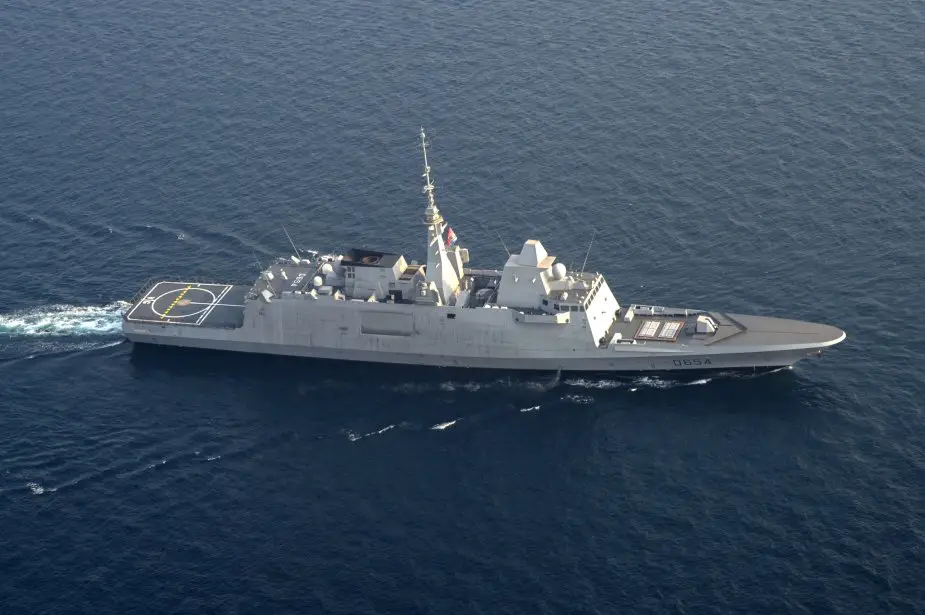Breaking news
European-led maritime surveillance mission in the Strait of Hormuz.
The governments of Belgium, Denmark, France, Germany, Greece, Italy, the Netherlands and Portugal have pledged their political support for the creation of a European-led maritime surveillance mission in the Strait of Hormuz, according to a joint statement released Monday on the website of the French Ministry for Europe and Foreign Affairs.
 France's Aquitaine-Class Anti-Submarine Warfare Destroyer Auvergne (D654) in the Persian Gulf on September 19 2017 (Picture source: U.S. Navy)
France's Aquitaine-Class Anti-Submarine Warfare Destroyer Auvergne (D654) in the Persian Gulf on September 19 2017 (Picture source: U.S. Navy)
“Recent developments in the Middle East are extremely worrying as they fuel tensions and increase the risk of a potential large-scale conflict with consequences in the whole region. This context calls for enhanced de-escalation initiatives to stop the ongoing trend,” the statement read.
The governments of the eight countries share the assessment that the current situation in the Gulf and the Strait of Hormuz remains unstable in a region critical to global stability, and support the de-escalation approach when it comes to dealing with regional security issues.
In complementarity with existing maritime security efforts and initiatives in the region, European Maritime Awareness in the Strait of Hormuz (EMASOH) aims to ensure a safe navigation environment and to lower the existing tensions in the region, the governments said in the joint statement.
The mission will concretely provide enhanced maritime situation awareness and surveillance through the deployment of additional maritime surveillance assets in the Gulf and Arabian Sea, in full accordance with international law, including the United Nations Convention on the Law of the Sea.
The governments believe that EMASOH will constitute a useful instrument in safeguarding the freedom of navigation by ensuring adequate coordination and information sharing mechanisms with all partners operating in the area, including the maritime industry.
Rising insecurity and instability have been witnessed in the Gulf and the Strait of Hormuz in 2019 with multiple maritime and non-maritime incidents as a result of growing regional tensions.
This situation has been affecting the freedom of navigation and the security of European and non-European vessels and crews in the area for months while jeopardizing trade and energy supplies with potential worldwide economic consequences, the statement noted.

























